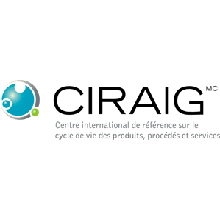Nouvelles
Launch of IMPACT World+, the first worldwide regionalized life cycle impact assessment methodology
The production and consumption of goods and services generate significant detrimental impacts on the environment. In an era of
market globalization, climate change, continued population growth and resource depletion, there is a compelling need for
decision-making tools to evaluate the best environmental options. Life cycle assessment (LCA) is an ISO-standardized method
that assesses the potential environmental impacts of a product throughout its entire life cycle, from raw material extraction,
manufacturing, distribution, use and reuse, maintenance and recycling to its final disposal—a cradle-to-grave
approach.
The life cycle impact assessment (LCIA) phase of an LCA aims to establish the relationship between the product or service and its potential environmental impacts (e.g. climate change, toxicity, biodiversity, etc). It answers questions such as what are the potential impacts on ecosystem quality and human health of 1 kg of carbon dioxide, dioxins or NOx emissions released into the atmosphere? Which is worse? LCIA therefore makes it possible to draw conclusions on the best environmental options.
However, LCIA has come under criticism because current methodologies do not account for the spatial variability of environmental impacts, relying instead on average conditions for non-specific areas. For example, a particulate matter emission will currently be considered in the same way in the respiratory effects environmental impact category whether it is emitted in the Sahara or in the middle of Tokyo.
IMPACT World+ was designed out of the need to develop a worldwide regionalized impact assessment method that accounts for local conditions and covers the entire planet. It implements state-of-the art impact modeling approaches developed as a major joint update to existing LCIA methods, including IMPACT 2002+ (Europe), EDIP (Scandinavia) and LUCAS (Canada).
“The IMPACT World+ team is very pleased to have contributed to the development of this novel methodology that extends beyond current regional modeling capabilities to the global level. IMPACT World+ is a further step towards improved transparency and reliability,” said Cécile Bulle, who leads the IMPACT World+ team.
Among its most important innovations, IMPACT World+ allows for the regionalized assessment of any geo-referenced emission/resource use and considers the uncertainty and spatial variability related to an unknown emission location by associating the corresponding geographic variability to each modeled impact score at a given geographical scale. IMPACT World+ has also led to major developments in the characterization modeling of human and ecosystem toxicity, acidification, water use, land use and eutrophication as well as multiple improvements in other impact categories.
When making an LCA-based decision, IMPACT World+ ensures that local issues all over the globe are considered in an environmental impact profile of a product or service assessed by the best scientific knowledge and approaches available. It is also the first LCIA method to quantify the certainty of a decision by determining, for example, that product A has an 85% probability of generating fewer impacts than product B.
IMPACT World+ was made possible through the dedicated work of the IMPACT World+ team and a $350 000 research grant from Alcoa Foundation. The LCIA method draws on the scientific developments of the last ten years and brings the work of some of the best researchers and PhD students in the field from the lab into daily LCA practice.
About the IMPACT World+ team
The mission of the IMPACT World+ team, a non-profit
organization that includes leading experts and researchers from the University of Michigan (USA), the Technical University of
Denmark (Denmark), Quantis (Switzerland), EPFL (Switzerland), CYCLECO (France), Polytechnique Montréal (Canada) and the CIRAIG
(Canada), is to operationalize regional impact assessment on a global level and integrate uncertainty and variability analysis
into life cycle assessment. For more information, go to www.impactworldplus.org.
IMPACT World+ team
Cécile Bulle, CIRAIG, Polytechnique Montreal
www.ciraig.org/fr/fiche_cecile_bulle.html
cecile.bulle@polymtl.ca
Sebastien Humbert, Quantis
sebastien.humbert@quantis-intl.com
Olivier Jolliet, School of Public Health, University of Michigan
www.sph.umich.edu/iscr/faculty/profile.cfm?uniqname=ojolliet
olivier.jolliet@umich.edu
Manuele Margni, CIRAIG, Polytechnique Montreal
www.ciraig.org/fr/fiche_manuele_margni.html
manuele.margni@polymtl.ca
Ralph Rosenbaum, Division for Quantitative Sustainability Assessment, Technical University of
Denmark
http://www.man.dtu.dk/English/Service/Phonebook.aspx?lg=showcommon&id=59267&type=person
rros@dtu.dk
With the scientific contributions of:
Anne-Marie Boulay (CIRAIG), Guillaume Bourgeault (CIRAIG), Viêt Cao (CIRAIG), Vincent de Bruille (CIRAIG), Louise Deschênes
(CIRAIG), Peter Fantke (University of Stuttgart), Carina Gronlund (University of Michigan), Andrew Henderson (University of
Michigan), Anna Kounina (EPFL, Quantis), Gladys Liard (CIRAIG), Annie Levasseur (CIRAIG), Jérôme Payet (Cycleco),
Pierre-Olivier Roy (CIRAIG) and Shanna Shaked (University of Michigan).
And the financial support of:
ALCOA Foundation
www.alcoa.com/canada/en/info_page/SR_operations_soc_foundation_overview.asp
International Life Cycle Chair Partners
www.chaire-cycledevie.org/en/partnership.php
Sustainability Consortium
www.sustainabilityconsortium.org




